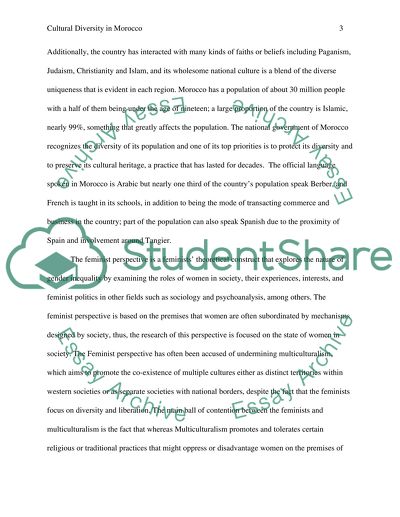Cite this document
(“Cultural Diversity in Morocco Essay Example | Topics and Well Written Essays - 1250 words”, n.d.)
Retrieved from https://studentshare.org/sociology/1489804-would-you-consider-your-country-of-origin-to-be
Retrieved from https://studentshare.org/sociology/1489804-would-you-consider-your-country-of-origin-to-be
(Cultural Diversity in Morocco Essay Example | Topics and Well Written Essays - 1250 Words)
https://studentshare.org/sociology/1489804-would-you-consider-your-country-of-origin-to-be.
https://studentshare.org/sociology/1489804-would-you-consider-your-country-of-origin-to-be.
“Cultural Diversity in Morocco Essay Example | Topics and Well Written Essays - 1250 Words”, n.d. https://studentshare.org/sociology/1489804-would-you-consider-your-country-of-origin-to-be.


